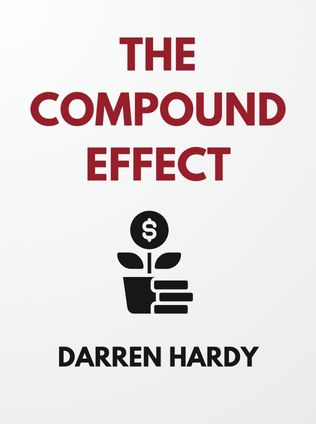
The Compound Effect
By Darren Hardy
Published 01/2010
About the Author
Darren Hardy is a prominent figure in the realm of personal development, known for his deep understanding of the principles that drive success. As a mentor, advisor, and speaker, Darren has spent over 25 years studying and applying success strategies. His work as the former publisher and editorial director of Success Magazine, where he interviewed and learned from some of the most successful individuals in the world, has provided him with a wealth of knowledge that he shares through his books, seminars, and personal coaching. His approach is not just theoretical but deeply practical, drawn from his own life experiences and the stories of the many successful people he has encountered. Darren’s mission is to equip people with the tools they need to achieve extraordinary results in their personal and professional lives, a mission that is clearly reflected in his book The Compound Effect.
Main Idea
The central idea of The Compound Effect is that small, consistent actions, when repeated over time, can lead to massive and lasting success. This concept is based on the principle of compounding, which we often associate with finance. Just as small amounts of money can grow into large sums through the power of compound interest, small decisions and habits can accumulate to create significant outcomes in our lives. The book emphasizes that success does not come from grand, sweeping actions, but rather from the steady accumulation of small, smart choices that are consistently applied over time.
Darren Hardy argues that the key to success lies not in drastic changes or revolutionary strategies, but in the power of the Compound Effect. This principle can work for or against us, depending on the choices we make. Whether it's our health, finances, relationships, or career, the decisions we make each day, no matter how small, are the building blocks of our future. The Compound Effect teaches us that by taking responsibility for our choices and committing to consistent, positive action, we can achieve extraordinary results.
Table of Contents
- Putting the Compound Effect Into Action
- You Make Your Choices, and Your Choices Make You
- Habits and Goals
- Finding Momentum
- Understanding What's Influencing You
- Breaking Through to Greater Success
Putting the Compound Effect Into Action
In the first chapter, Darren Hardy introduces the reader to the concept of the Compound Effect and emphasizes the importance of understanding and applying it in everyday life. He recounts his personal experiences and how, from a young age, he learned that small, consistent efforts lead to significant results over time. This foundational idea is critical to grasp because it forms the basis for the entire book.
Hardy points out that the reason many people fail to achieve success is that they are not patient enough to see the results of their efforts. The Compound Effect requires time and consistency, but in our fast-paced world, people often expect quick results and become discouraged when they don't see immediate rewards. Hardy writes,
"Small, smart choices + consistency + time = RADICAL DIFFERENCE." - Darren Hardy
He explains that the Compound Effect is always working, whether for good or bad, depending on the choices we make. By taking control of our daily decisions and understanding the long-term impact of those choices, we can harness the power of the Compound Effect to create a life of success and fulfillment. The key is to start with small, manageable changes and stick with them consistently over time.
Sign up for FREE and get access to 1,400+ books summaries.
You May Also Like
The Subtle Art of Not Giving a F*ck
A Counterintuitive Approach to Living a Good Life
By Mark MansonRich Dad Poor Dad
What the Rich Teach Their Kids About Money - That the Poor and Middle Class Do Not!
By Robert T. KiyosakiHow To Win Friends and Influence People
The All-Time Classic Manual Of People Skills
By Dale CarnegieQuiet: The Power of Introverts
The Power of Introverts in a World That Can't Stop Talking
By Susan Cain



















